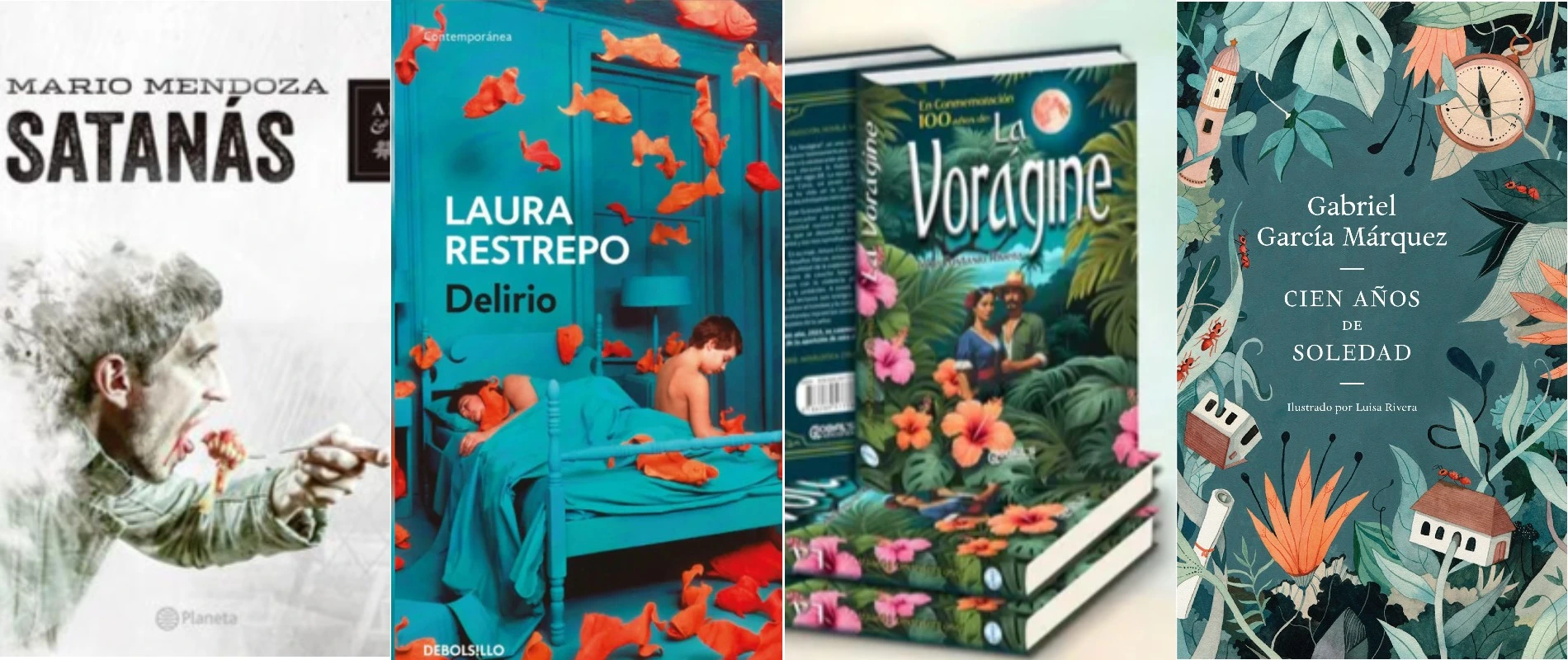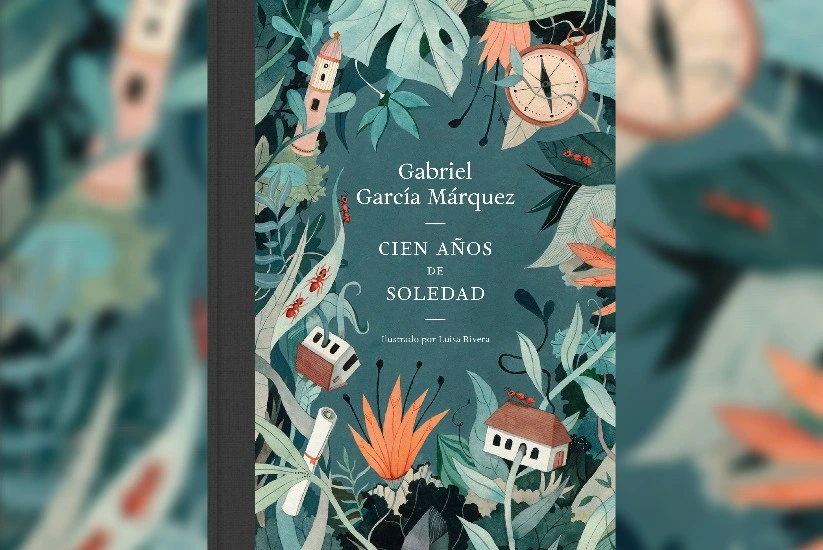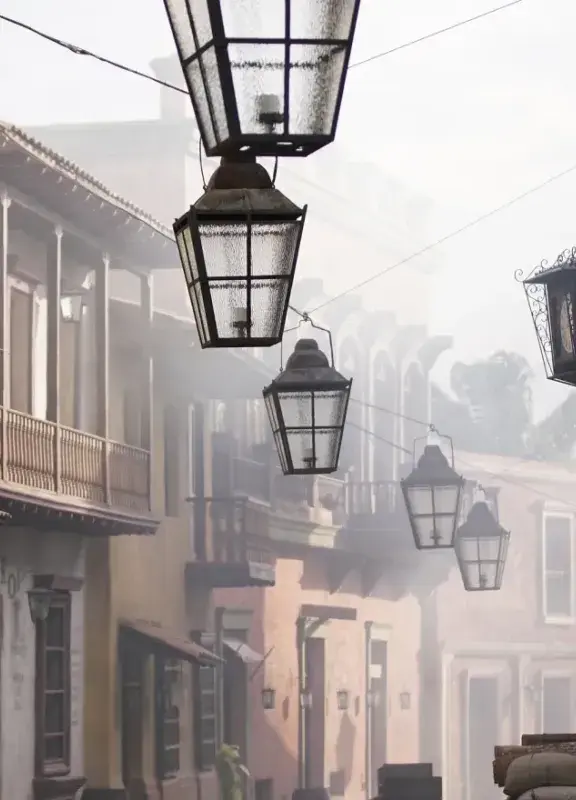Literature from the land of beauty: four recommended Colombian books
Discover four works of Colombian literature and explore the magic of their narratives. Don't miss four books by authors from the land of beauty.

Colombian literature has established itself over the years as a significant global reference, distinguished by its narrative diversity and ability to address a wide range of genres. Our literary richness has enabled Colombian writers' works to captivate readers in various corners of the world. In this article, we present some of the most notable creations born in Colombia that, over time, have left a mark on global culture.
Satanás – Mario Mendoza

“One regrets anything, except not having been a coward”
Satanás is a work that has generated great pride in Colombian literature, as it won the prestigious Biblioteca Breve award in 2022, standing out in the international literary scene and drawing attention to contemporary Colombian literature. Additionally, the 2007 film adaptation helped increase its recognition and spread the work to a broader audience.
The story narrates the intertwined lives of several characters affected by the actions of Campo Elías, a Vietnam War veteran. Each character faces their own struggles, ultimately leading to the massacre that occurred at Pozzeto, a restaurant in the Colombian capital. This work has contributed to Colombian literature occupying a prominent place in the global literary scene.
You may be interested: 5 Colombian writers who have enchanted the world with their words
Delirio – Laura Restrepo

“All secrets are kept in the same drawer, the drawer of secrets, and if you reveal one, you risk the same happening with the others”
Sometimes, madness seems inexplicable, but at other times, a story lies behind it with an answer. Delirio, the novel by Bogotana writer Laura Restrepo, narrates the distressing experience of a man who returns home after a brief business trip and finds that his wife has completely lost her sanity. Bewildered by not knowing what happened during his three-day absence, he decides to investigate to help her overcome the crisis. What he does not imagine is that, in doing so, he will discover how little he knows about the deep wounds of the past of the woman he loves.
The Colombian novel was awarded the Premio Alfaguara de Novela 2004, one of the most important recognitions in the Spanish-speaking world. It also received critical acclaim and solidified Laura Restrepo’s international reputation as a significant literary figure. Narrated with talent and emotion, this work showcases an uncommon narrative energy, where suspense is maintained until the end, highlighting its relevance in contemporary literature.
You may be interested: Stories of Colombian women who defied limits
La Vorágine – José Eustasio Rivera

“My heart is like a moss-covered rock, where a tear is never lacking.”
La Vorágine, the masterpiece of José Eustasio Rivera, celebrated its centennial in 2024, solidifying its status as one of the pillars of Colombian and Latin American literature. Through its pages, the author narrates the story of Arturo Cova, a poet who embarks on a journey to the plains and the Colombian Amazon jungle to find his destiny. What awaits him is a land that becomes a mirror, forcing him to confront himself at every step. Amid his journey through this whirlwind, this Vorágine, Cova faces not only his demons but also those inhabiting this territory.
The work is written in a style that reveals influences from both romanticism and modernism, and its language has made many generations consider this novel a challenge. In fact, it was translated into English as The Vortex and has versions in French, Russian, Portuguese, German, Italian, Japanese, and Polish. It also has a film adaptation from 1949 and is considered José Eustasio Rivera’s masterpiece, continuing to challenge and captivate readers of all eras.
Cien años de soledad – Gabriel García Márquez

“The world was so new that many things lacked names, and to mention them, you had to point with your finger.”
The iconic work of Gabriel García Márquez, One Hundred Years of Solitude, immerses the reader in the fascinating universe of the Buendía family in Macondo, a town where the magical and the real intertwine in an eternal dance. Through seven generations, the novel becomes a journey of passions, conflicts, and revelations. García Márquez, with his narrative mastery, weaves a story that explores universal themes such as love, power, death, and destiny in a tale that transcends time and space, challenging the perception of reality.
One Hundred Years of Solitude grew exponentially since its publication, earning various awards and recognitions. This literary classic received the Premio Rómulo Gallegos in 1972 and significantly contributed to the Nobel Prize in Literature in 1982. Later, in 1999, the manuscript was included in the 100 books of the 20th century by the French newspaper Le Monde. In 2001, it was listed among the 100 best Spanish-language novels by Spain’s El Mundo newspaper.
In 2024, its first adaptation to the small screen on Netflix was filmed primarily in the country of captivating beauty, enchanting audiences both nationally and internationally. Undoubtedly, One Hundred Years of Solitude remains relevant not only as a literary milestone but also as a cultural phenomenon that has left a mark in different parts of the world.
You may be interested: The country that inspired Gabriel García Márquez
 Welcome, you are in
Welcome, you are in 













